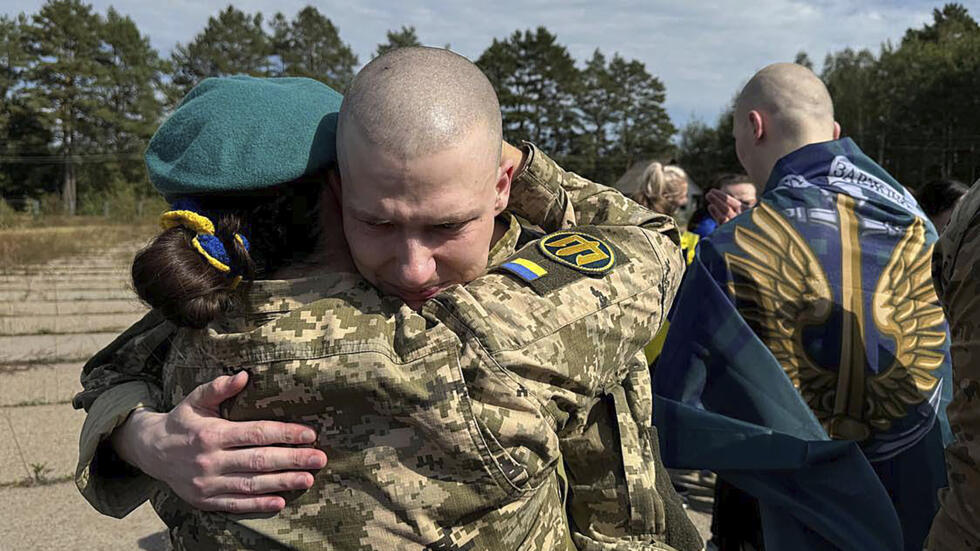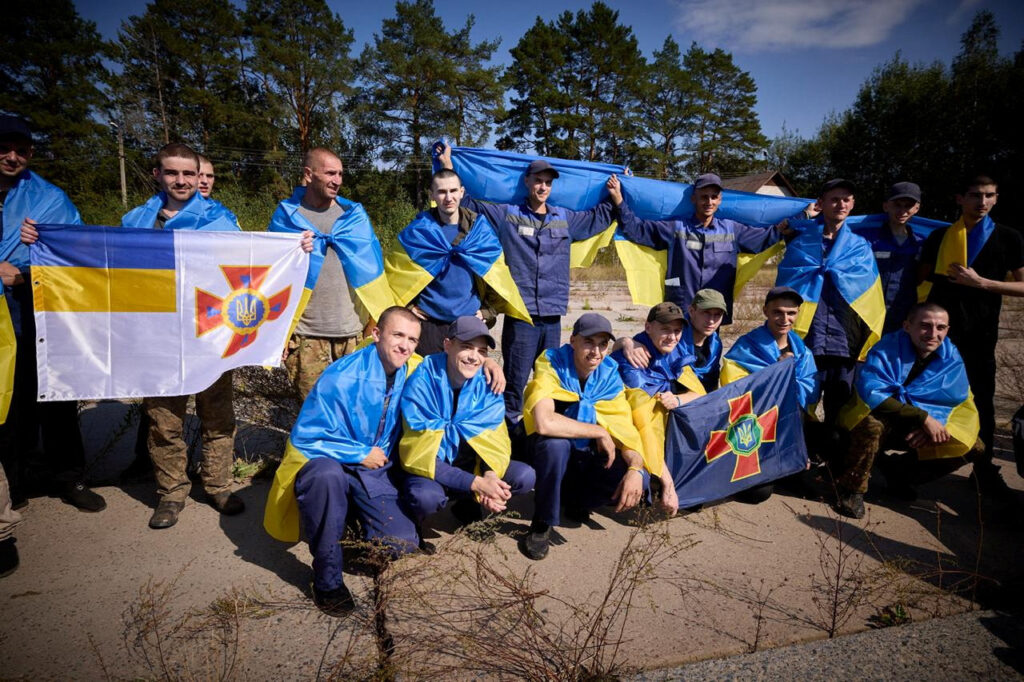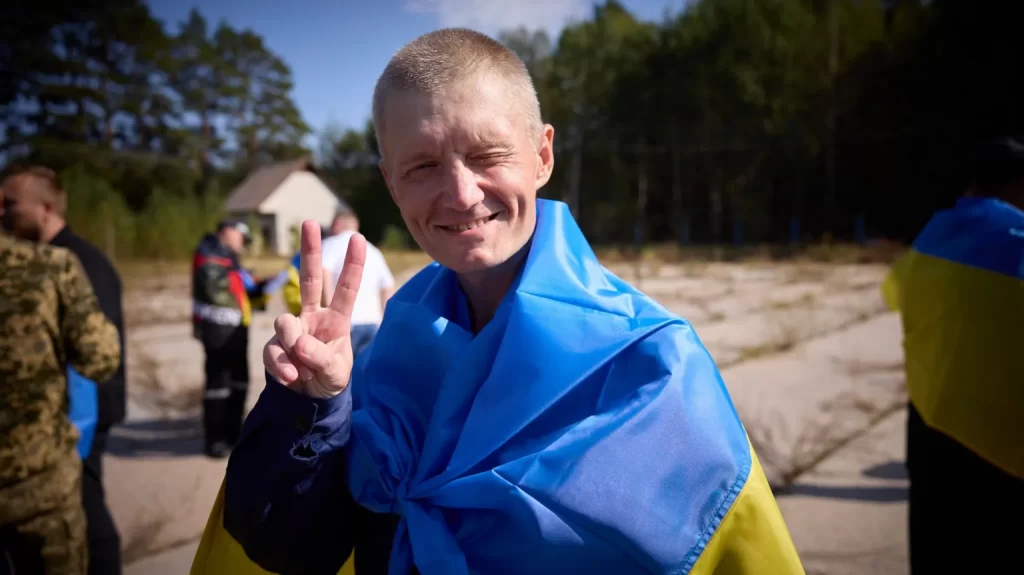Russia and Ukraine have completed a significant prisoner swap involving 206 detainees, with the exchange facilitated by the United Arab Emirates (UAE), officials from both countries confirmed on Saturday.

The Russian Ministry of Defence announced that 103 of its servicemen were released, many of whom had been captured during Ukraine’s recent incursion into Russia’s Kursk region. Ukraine, in turn, received 103 of its own personnel.
Ukrainian President Volodymyr Zelensky took to social media to celebrate the return of his country’s soldiers, posting images of some of the freed captives with the message, “Our people are home.” Zelensky detailed that the released Ukrainians included 82 privates and sergeants, as well as 21 officers from various branches of the military and law enforcement.
“These brave individuals were captured while defending key regions across our country, including Kyiv, Donetsk, Mariupol, Azovstal, Luhansk, Zaporizhzhia, and Kharkiv,” Zelensky stated, highlighting the wide-ranging nature of the conflict.

The Russian Ministry of Defence reported that their freed soldiers were currently in Belarus, where they would receive “necessary psychological and medical assistance” before being allowed to contact their families and return to Russia.
This exchange follows a similar swap in August involving 230 prisoners, which also came in the wake of Ukraine’s surprise attack into the Kursk region. That incursion, which saw Ukrainian forces advance up to 30 kilometers (18 miles) into Russian territory, was partly aimed at diverting Russian troops from their operations in eastern Ukraine.
The UAE’s role as mediator in these exchanges underscores its position of relative neutrality in the conflict, having maintained diplomatic ties with both Moscow and Kyiv throughout the war.
As the prisoner swap was being conducted, fighting continued in eastern Ukraine. The Russian Ministry of Defence claimed on Saturday that its forces had captured the village of Zhelanne Pershe in the Pokrovsk district, less than 30 kilometers (19 miles) from the strategically important town of Pokrovsk.

Pokrovsk, with its key railway station and road intersections, serves as a crucial logistics hub for Ukrainian forces in the Donbas region. Its proximity to the newly captured village highlights the ongoing intensity of the conflict in eastern Ukraine, where Russian forces have reportedly made several advances in recent weeks.
This latest prisoner exchange and the concurrent military developments underscore the complex and fluid nature of the war, now in its third year. As both sides continue to vie for territorial control and strategic advantage, diplomatic efforts like these prisoner swaps offer rare moments of cooperation amid the broader conflict.
The international community continues to watch these developments closely, as the war’s impact extends far beyond the borders of Ukraine and Russia, affecting global geopolitics, energy markets, and humanitarian concerns.



